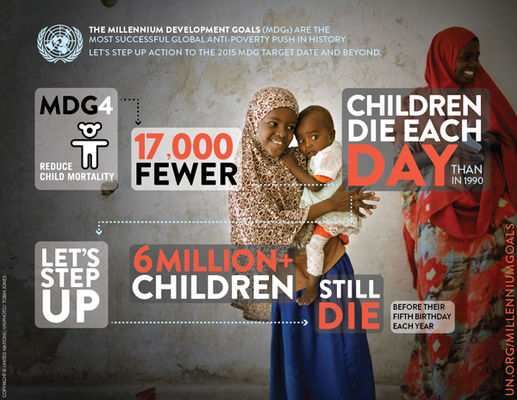June is graduation time in the U.S. Even so, I didn’t expect to see so many graduation caps and gowns at the Institute of Medicine’s (IOM) recent workshop on Public Private Partnerships (PPPs) for Global Health and Safety: The Long-term Picture for Health Systems: The Role of Public-Private Partnerships in Health Systems Strengthening.
As ministers of health, heads of NGOs, corporate leaders, academics and other participants worked through the objectives of the meeting being held at the New York Academy of Medicine building, many local high schools and middle schools were holding graduation ceremonies in the adjacent auditorium. The faint sounds of brass bands and happy applause we heard were an apt metaphor for the 2-day workshop in two important ways:
Graduation of MDGs
Much of the discussion of the workshop centered on the “graduation” of the Millennium Development Goals (MDGs). The MDGs have been largely considered a success in that they garnered tremendous public and private support around 8 concrete goals (3 of which were health related). Many participants remarked that the last 15 years have seen a substantial increase of resources and attention for global health, but much of that focus has been vertically organized around the three specific MDG health goals: HIV/AIDs, maternal health, and infant and child mortality. Focusing on specific problems has proved to be a good model for public private partnerships as goals are easier to define, value propositions are clear and metrics are easier to track. But Simon Bland, co-chair of the IOM workshop and director of the New York liaison office for UNAIDS, said the vertical model of mobilizing support is not the most sustainable approach to global health and that the gains of the MDGs are “fragile and reversible.” The next step is to strengthen and build sustainable healthcare systems that are equipped to handle the full range of health needs – from infectious disease and maternal and child health to injuries and the rising rates of chronic disease.
Much like the typical U.S. student graduating from high school today – the need for further education and refinement remains in the world of global development. While celebration for dramatic improvements around the world is warranted, participants remarked that we must now focus our attention on new Sustainable Development Goals (SDGs) which are currently being negotiated. Bland said that SDGs should not be considered “MDGs2.0.” They are intended to be “universal, highly ambitious, and transferable between settings.” Only one of the new SDGs is explicitly a health goal: “Ensure Healthy Lives and Promote Well-Being.” But it is a large goal that will require PPPs to work at a more systemic and sustainable level.
Community Engagement
Many participants at the IOM workshop also spoke of the importance of community engagement in PPPs. As value propositions for the public and private sector might be clear, an oft missing step is considering the needs and wants of the populations being served. Tech Entrepreneur Reza Jarafi from e-Development International urged people to consider “the end user” and many participants continued to press speakers on how PPPs can work at the levels of prevention and primary care. Rajesh Anandan from the US Fund for UNICEF reported on “Ureport” – a free SMS-based system that allows young Ugandans to report from their phones on what is happening in their communities, answer poll questions and work together with other community leaders for positive change .
As we talked about community engagement in PPPs during the workshop, the nearby graduation ceremonies offered up a perfect example of engagement in action. When Jo Ivey Boufford, Co-Chair of the IOM Forum became President of the New York Academy of Medicine, in 2007 she realized that the organization needed to find ways to better engage with its community. With a building situated at the border between one of the wealthiest and one of the poorest neighborhoods in New York City, she opened up auditorium space to local middle and high schools to hold graduation ceremonies. What better way to signal to underserved communities that their health matters then by inviting families to celebrate in a house of medicine?
To learn more about the IOM Forum on Public Private Partnerships in Global Health, read background papers and watch videos from the entire event, go here.

